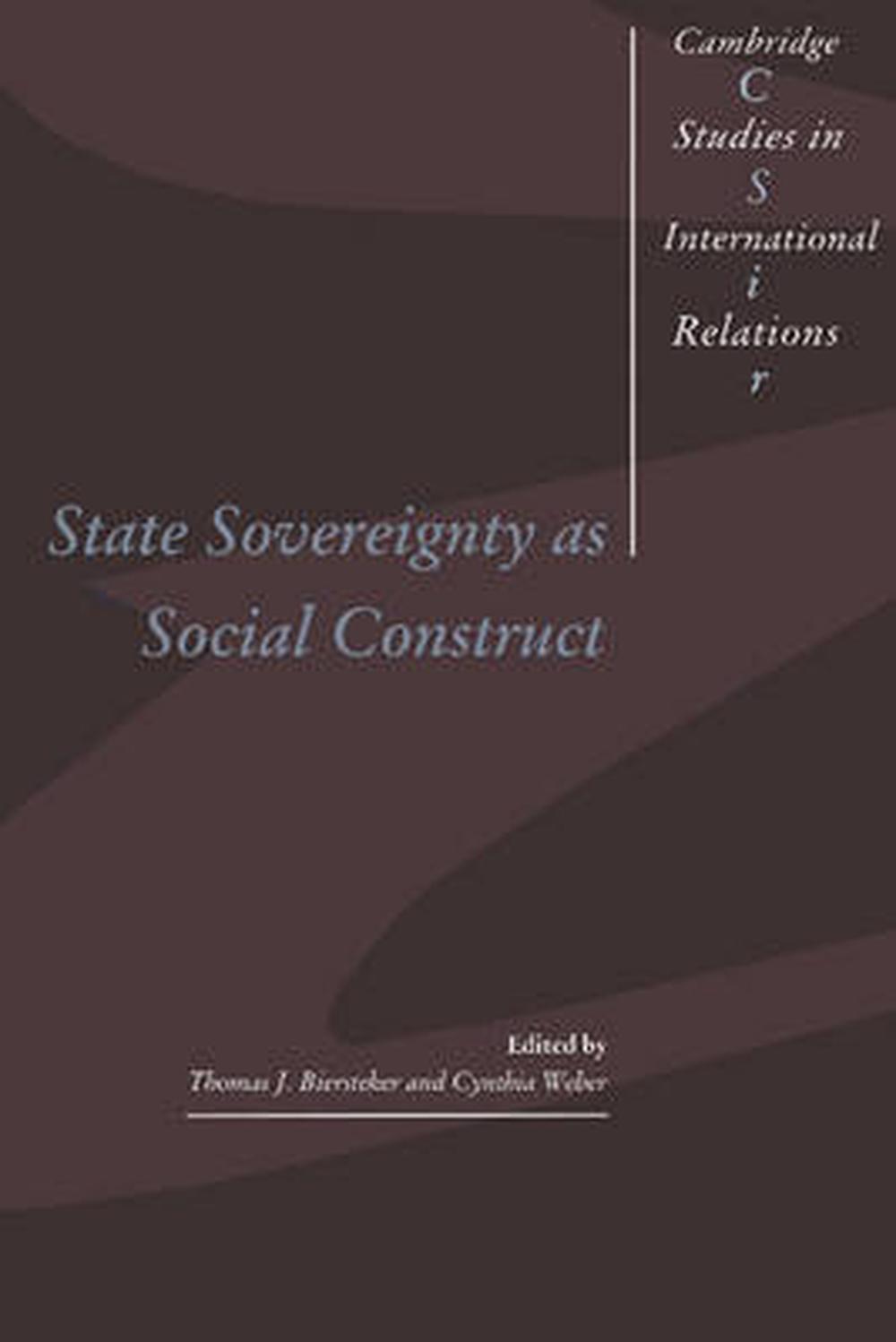
When you click on links to various merchants on this site and make a purchase, this can result in this site earning a commission. Affiliate programs and affiliations include, but are not limited to, the eBay Partner Network.
State Sovereignty as Social Construct by Thomas J. Biersteker (English) Paperbac

- Item No : 156842156051
- Condition : Brand New
- Brand : No brand Info
- Seller : the_nile
- Current Bid : US $46.82
-
* Item Description
-
The Nile on eBay

State Sovereignty as Social Construct
by Thomas J. Biersteker
State sovereignty is an inherently social construct. The modern state system is not based on some timeless principle of sovereignty, but on the production of a normative conception that links authority, territory, population, and recognition in a unique way, and in a particular place (the state). The unique contribution of this book is to describe and illustrate the practices that have produced various sovereign ideals and resistances to them. The contributors analyze how the components of state sovereignty are socially constructed and combined in specific historical contexts.
FORMAT
PaperbackLANGUAGE
EnglishCONDITION
Brand New
Publisher Description
State sovereignty is an inherently social construct. The modern state system is not based on some timeless principle of sovereignty, but on the production of a normative conception that links authority, territory, population, and recognition in a unique way, and in a particular place (the state). The unique contribution of this book is to describe and illustrate the practices that have produced various sovereign ideals and resistances to them. The contributors analyze how the components of state sovereignty are socially constructed and combined in specific historical contexts.
Table of Contents
1. The social construction of state sovereignty Thomas J. Biersteker and Cynthia Weber; 2. Contested sovereignty: the social construction of colonial imperialism David Strang; 3. Beyond the sovereignty dilemma: quasi-states as social construct Naeem Inayatullah; 4. The sovereign state system as political-territorial ideal: historical and contemporary considerations Alexander Murphy; 5. Sovereignty and the nation: constructing the boundaries of national identity Roxanne Lynn Doty; 6. Sovereignty, nationalism and regional order in the Arab states system Michael Barnett; 7. Popular sovereigns, bound states: the practices, structures and geopolitics of Philadelphian systems Daniel Deudney; 8. Hierarchy under anarchy: informal empire and the East German state Alexander Wendt and Daniel Friedheim; 9. Reconstructing the analysis of sovereignty; concluding reflections and directions for future research Cynthia Weber and Thomas J. Biersteker.
Review
"This useful collection poses an important intellectual challenge to the dominant epistemology...and the central substantive concern...of international politics. The contributors perceptively employ a social constructivist approach to unpack the concept of state sovereignity and reinterpret its several constituent dimensions: recognition, territory, population, authority." S. Mozaffar, Choice
Review Quote
"This useful collection poses an important intellectual challenge to the dominant epistemology...and the central substantive concern...of international politics. The contributors perceptively employ a social constructivist approach to unpack the concept of state sovereignity and reinterpret its several constituent dimensions: recognition, territory, population, authority." S. Mozaffar, Choice
Promotional "Headline"
The contributors analyse how the components of state sovereignty are socially constructed and combined in specific historical contexts.
Description for Bookstore
State sovereignty is an inherently social construct. The modern state system is not based on some timeless principle of sovereignty, but on a conception that uniquely links authority, territory, population (society, nation), and recognition, in a particular place (the state). This book describes the practices that have produced various sovereign ideals and resistances to them.
Description for Library
State sovereignty is an inherently social construct. The modern state system is not based on some timeless principle of sovereignty, but on a conception that uniquely links authority, territory, population (society, nation), and recognition, in a particular place (the state). This book describes the practices that have produced various sovereign ideals and resistances to them.
Details
ISBN0521565995Short Title STATE SOVEREIGNTY AS SOCIAL COPages 316Publisher Cambridge University PressSeries Cambridge Studies in International Relations (Paperback)Language EnglishISBN-10 0521565995ISBN-13 9780521565998Media BookFormat PaperbackDEWEY 320.15Series Number 46Illustrations YesYear 1996Publication Date 1996-05-31Imprint Cambridge University PressPlace of Publication CambridgeCountry of Publication United KingdomAuthor Thomas J. BierstekerEdited by Cynthia WeberAffiliation University of LeedsDOI 10.1604/9780521565998Audience Professional and ScholarlyUK Release Date 1996-05-02AU Release Date 1996-05-02NZ Release Date 1996-05-02


-
- NO GRID Survival Projects
- $ 37.00
















